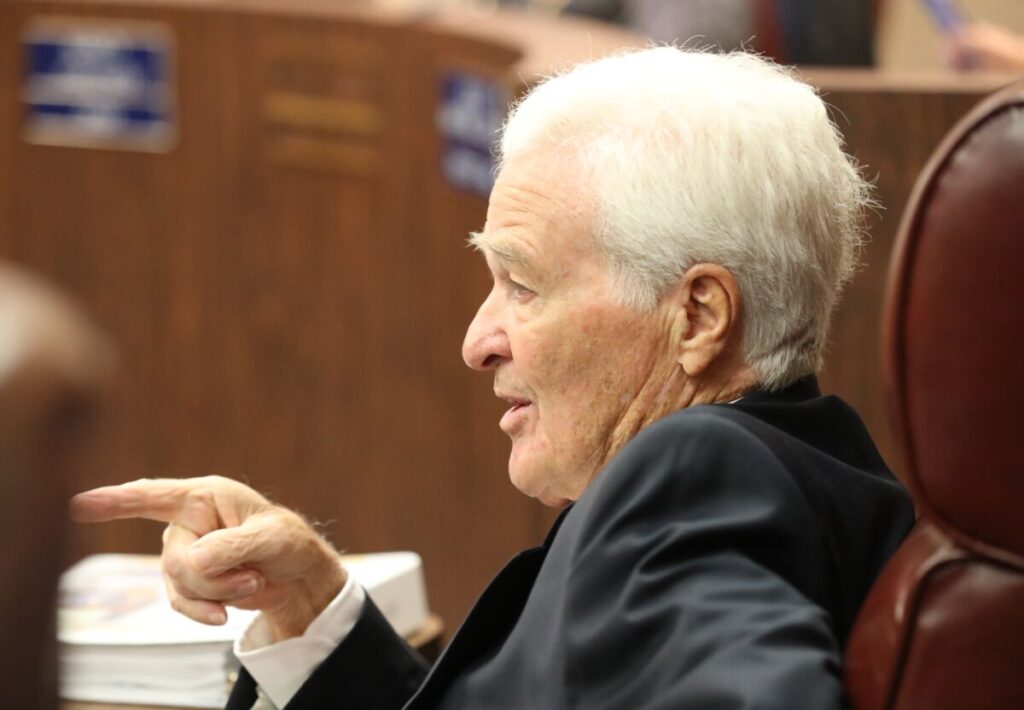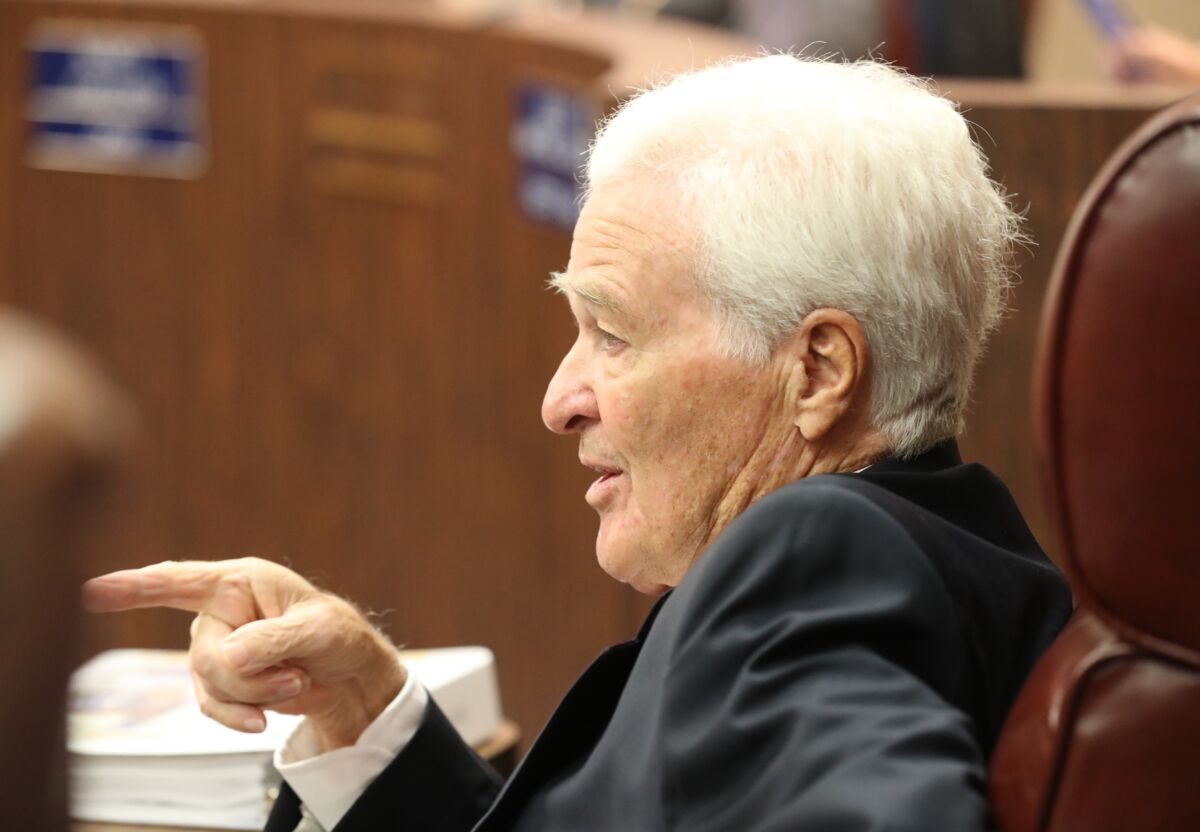Marion County School Board Wrap-up

School board member Don Browning speaks during a meeting at the Marion County Public School Board in Ocala, Fla. on Tuesday, Sept. 7, 2021. [Bruce Ackerman/Ocala Gazette] 2021.

School board member Don Browning speaks during a meeting at the Marion County Public School Board in Ocala on Sept. 7. [Bruce Ackerman/Ocala Gazette]
Browning, who was appointed by the Governor’s office after Beth McCall resigned, asked for nine items to be pulled from the consent vote for further discussion. Much of Browning’s concern with each issue revolved not around what was on the docket itself, but with overarching concerns around certain programs.
The first point of contention came when Browning wanted to discuss a vote on what was labeled, “Renewal of the Early Childhood Music Education Incentive Pilot Program at Fort McCoy School, Ocala Springs Elementary, and Reddick-Collier Elementary.”
The program oversees “implementation of a comprehensive music education program for students in Kindergarten through second grade.” This had been voted and approved by the board before; the vote was primarily in relation to the approval of the grant that funds the program, as board member Eric Cummings repeatedly pointed out during discussion.
Browning wanted to use the opportunity, though, to express concerns with the music program overall, specifically the program’s reach to two-year-olds and what is described as “needy families.”
“It seems like you’re lamenting the need that we’re seeing for agreements like this, no matter where the money is coming from,” noted Chairwoman Nancy Thrower.
“I am in favor of parts of this. I am very against parts of this; extremely against the two-year part,” responded Browning.
“I’m just extremely against it. I’m also extremely against…designating needy families and going into the home. I think it’s way beyond our scope.”
The measure did eventually pass 4-1. But the tone was set for the meeting, as Thrower and Cummings pointed out more than once the ability to speak to each other’s offices at any time, so as to avoid extra discussion on the floor. Browning maintained discussion on the floor was the only way the public heard about certain measures.
“I can get it that way, I can get it this way. I prefer to get it this way…I think it’s important the public hear it,” said Browning.
There was discussion amongst the whole board concerning the fencing project for Belleview-Santos Elementary School. Browning was uncomfortable with the budget—$184,960—going towards fencing alone, allowing the school to look like a “detention facility.” As board member Allison Campbell pointed out, however, that money stemmed from an educational facilities security grant, so the money could only be used for educational facility security.
She went on to point out as well, that Belleview-Santos Elementary School is the only school under the board’s purview that is on a major highway, specifically U.S. Highway 441, opening it up to wanderers.
Board member Kelly King interjected she felt uncomfortable exposing weaknesses to the public and Thrower concurred, adding that if documents are reviewed ahead of time to understand the points Campbell made, then the weaknesses never have to be discussed publicly.
And as for the public themselves, there were three members who asked to speak before the board. One parent simply wanted to provide support to the school board in any future decisions that needed to be made concerning curriculum.
After becoming familiar with his child’s curriculum during quarantine, the parent—representing a larger group—wanted to assure the board they would have support “to make educational decisions to promote American values and unity,” said the parent.
“Our goal is to ensure our schools remain institutions of learning, not institutions for programming,” the parent added
A second concerned citizen asked for school board meetings to be moved to an auditorium so more citizens could attend, demanded to know what happened to taxpayers dollars if a child was pulled from school to be home-schooled and directly addressed King multiple times about an alleged “push” for three year-old schooling. After being reminded it was strictly a public comment time, not a question-and-answer time, the gentleman left.
However, King did address his question during her public comments, explaining a program had been suggested by the Superintendent and her team, to revitalize an empty school building—Evergreen Elementary School—for community programs, which included a program option for three-year-olds. It would primarily be around music programs and phonological learning, according to King.
She said she heard the pitch the same time the other board members did at the last meeting and wasn’t opposed to the idea.
The final public commentor of the evening was a parent who serves on the school advisory board at North Marion High School and was concerned with new building plans for the school’s reconstruction.
The plans include reimagining part of the kitchen as an ESE classroom, a program North Marion no longer has, as well as creating resource rooms in a multi-purpose space which are counterintuitive to how classrooms are now structured.
The plans—which also include auditorium designs that aren’t conducive to auditory needs—were described by the citizen as not fitting the needs of the students.
“It seems like a big waste of taxpayers’ dollars to do a building plan that doesn’t serve the school’s purposes,” the parent noted, and asked the school board to investigate the issue and help cut through the red tape.
Her request garnered an immediate response, as the board decided to investigate the plan, where it came from as well as the stakeholder input.





